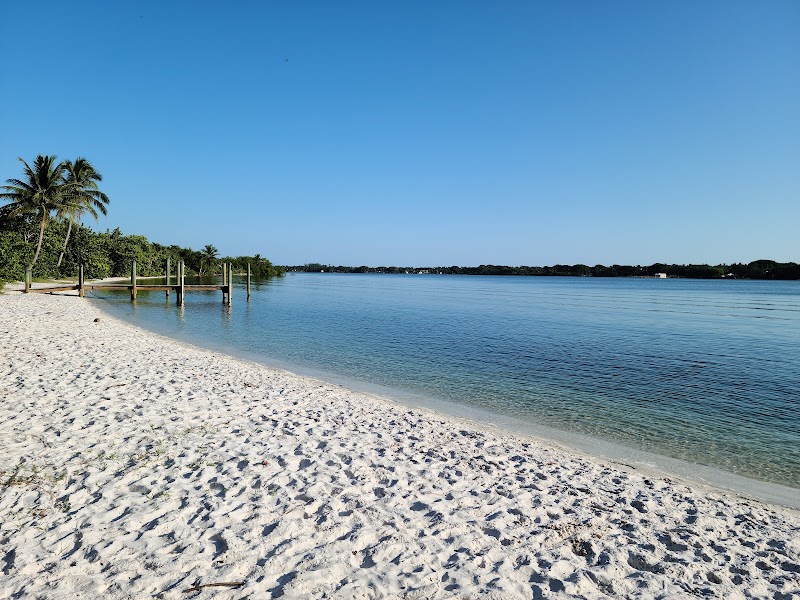
Nathaniel P. Reed Hobe Sound National Wildlife Refuge Adventures
Nathaniel P. Reed Hobe Sound National Wildlife Refuge is a prime destination for bird enthusiasts and beachcombers, boasting unique coastal habitats and abundant wildlife.
Popular Activities
Discover the Untamed Beauty of Nathaniel P. Reed Hobe Sound National Wildlife Refuge
As the sun rises over Florida’s east coast, the skies above Nathaniel P. Reed Hobe Sound National Wildlife Refuge come alive with the vibrant hues of dawn, ushering in another day in this captivating sanctuary. Visitors venturing here at first light might witness the skies painted in strokes of orange and pink, the horizon gradually unveiling the crisp outline of swaying mangroves and whispering sea oats. This refuge is more than a mere strip of land - it’s a dynamic ecosystem where adventure mingles with tranquility, offering an experience that resonates with the soul of any outdoor enthusiast.
Stepping foot into this natural wonderland, one can almost hear the whisper of the Atlantic breeze as it streams through the canopy of the native sand pine scrub forest. The environment, both inviting and wild, showcases an endless array of sensory delights. The scent of salt lingers in the air, mingling with the earthy aroma of pine needles underfoot. As you traverse the refuge, your footsteps seem to join in a harmonious rhythm with the distant sound of waves crashing on the sand.
Explorers find themselves entranced by the diversity of wildlife inhabiting this preserved landscape, from the charismatic gopher tortoises lumbering across sandy trails to the occasional flashes of iridescent blue signaling the dart of a scrub jay. The burr of cicadas pulses through the air, forming a natural symphony that underscores the untamed spirit of this place.
The trails here, reaching a modest elevation, lead adventurers through varied terrains—a journey that is both exhilarating and refreshing. The gently rolling paths offer ample opportunity for hikers to immerse themselves in nature’s embrace. For those keen on photography, the refuge’s vistas serve as a living canvas, ever-changing with the light and seasons. Early mornings or late afternoons provide the best natural lighting, casting long shadows and saturating colors.
For climbers, although the refuge does not possess towering cliffs or challenging routes, it does offer an opportunity to engage with Florida’s unique topography. The rock formations, shells, and coral embedded in the landscape invite exploration, mini-adventures for those intent on discovering what lies both above and below the surface.
Practicality should accompany your sense of wonder. A hike here demands preparation; comfortable footwear to navigate sandy paths, sun protection for the unshaded stretches, and plenty of water to combat Florida’s humid climate. Year-round, temperatures can be deceptive, lulling you with mild breezes while the sun's power grows relentless. Timing your visit is essential too—aside from the golden hours for photographers, the refuge's trails can become crowded during peak seasons, particularly between December and April when migratory birds abound.
Whether a casual rambler or seasoned explorer, this refuge has challenges and delights in equal measure. The trails provide a gentle introduction to Florida’s inland wildlife scenes while reminding us of the coastal ecosystems teeming with unseen life. As the day concludes, with landscapes now bathed in the buttery glow of a setting sun, one might pause, perhaps at the refuge’s boundary, the ocean ahead, reflecting on the experiences of the day and the eternal allure of places where land, sea, and sky converge in abiding harmony.
In every plant or breeze, an invitation is offered: to tread lightly upon the land, to appreciate its quiet majesty, and to embrace the simple, profound joys of connecting with the natural world in one of its purest forms. Nathaniel P. Reed Hobe Sound National Wildlife Refuge promises more than an encounter with Florida’s wild side—it promises a journey into the heart of nature itself.
Plan Your Visit
Everything you need to know to prepare for an unforgettable trip to Nathaniel P. Reed Hobe Sound National Wildlife Refuge.
Entrance Requirements
Free access, no permits required.
Best Time to Visit
Visit during spring for mild temperatures or summer for turtle nesting.
Visitor Information
Hobe Sound Nature Center offers educational programs and exhibits about the local ecosystem.
Getting There
Accessible via U.S. Highway 1 with no seasonal closures.
Weather & Climate
Temperatures range from the high 60s in winter to mid-80s in summer, with the wet season bringing frequent afternoon thunderstorms from June to September.
Conservation Efforts
The refuge faces threats from coastal erosion, habitat degradation, and human disturbance to wildlife, particularly during the turtle nesting season.
Camping in Nathaniel P. Reed Hobe Sound National Wildlife Refuge
Find the perfect spot to stay overnight and immerse yourself in the details.
Top Trails
Atlantic Ridge Preserve Trail
Featuring a mix of coastal scrub and beach views, it's ideal for a leisurely walk.
Hobe Mountain Tower Trail
Short trail leading to an observation tower with sweeping views.
Trailblazer Tips
Arrive early to enjoy the solitude of the beach and catch glimpses of nesting birds.
Visit in late spring or early summer to witness sea turtle nesting activity.
Parking is limited, especially during peak times; plan accordingly.
Bring binoculars for enhanced wildlife viewing along the trails and beach.
